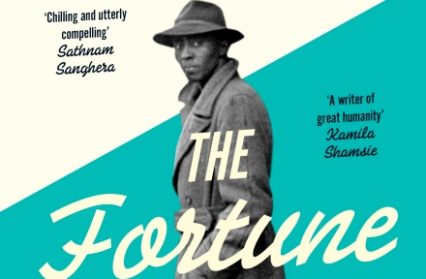Caragh Medlicott reviews The Fortune Men from Nadifa Mohamed, a novel which recounts the true story of Mahmood Hussein Mattan, a Somali sailor who was hanged for a crime he did not commit.
Effectively novelising a true story requires a lot of writerly instinct. True, the skeleton of the plot is readymade – yet to bring real figures to life, to effectively season with research, and to deftly handle any residual emotional baggage is by no means a small feat. Some authors return to the pages of centuries past to reimagine the epochs of history à la Hilary Mantel, while others tread the rocky and volatile terrain of a history still ensnared within that wide net of living memory. One novelist to opt for the latter of these techniques is Nadifa Mohamed who, in her third novel The Fortune Men, retells the tragic true story of Mahmood Hussein Mattan, a young Somali man wrongly convicted, and later executed, for a murder he didn’t commit in 1950s Cardiff.
Set amongst the smoky tower blocks and sea-soaked docklands of Cardiff’s Tiger Bay, Mohamed reimagines an area that – in mid-century Cardiff – was a treasure trove of diversity, a settling place for multitudes of international seamen and workers alike. The Fortune Men is told primarily from the perspective of Mahmood, a merchant seaman in his late twenties, and follows the events which lead up to his wrongful conviction for the murder of shopkeeper and moneylender Lily Volpert (here, renamed Violet Volacki in accordance with the wishes of living relatives). Anyone familiar with the true case of Mahmood Mattan will not find much of the minutiae of the police conspiracy which condemned Mattan to death, instead, Mohamed focuses her attention on the rich inner life of an outwardly taciturn Mahmood.
The Tiger Bay of the 1950s is an intimidating location for any author to establish. Its vastness and duplicity require more than mere exertion to be wrestled into submission – yet Mohamed, with the slightest cast of nostalgia, conjures it masterfully. It is her characteristically rich prose which draws out Tiger Bay’s grizzled, chiaroscuro beauty: “The splash of tyre on wet tarmac, the stink of sesame oil and broiling meat from Sam On Wen’s Chinese restaurant, the tinny clatter of calypso from a record player, the lean shadows hunkering near the bus stop.” It is a space of contrast, of colliding cultures; one where you may be greeted warmly by a friend or fearfully by a stranger – a place where “you cannot show weakness or your days are numbered”.
Despite the strength of location, the novel suffers from a lack of pace, especially in its opening chapters where affectionate but tension-free scenes fail to drive the story forward. Mohamed intersplices accounts from Mahmood with reflections from the Volacki family both before, during and after the murder of Violet. These reflections certainly serve to add depth to what could have been a faceless murder victim, yet their sporadicness within the breadth of the novel can add to the overall sense of a stop-start pacing, one which moves between gallops and trots in a way which can be disorientating.
After a plethora of extensive flashbacks to Mahmood’s childhood in British Somaliland, the pretenses of civility in the “famous British justice [system]” are rendered both pantomime and insidious. Despite the depth of his mistreatment, Mahmood never bows to the reader’s simple or indulgent pathos. The heat of his anger burns through the pages as his fate substantiates. Mahmood observes the court and sees with objectivity that “they are blind to […] his manifestations: the tireless stoker, the poker shark, the elegant wanderer, the love-starved husband, the soft-hearted father”. And in remembering this past injustice – one which has long scarred the history of Tiger Bay – Mohamed brings some long-deserved humanity to the last innocent man hanged in Wales.
The Fortune Men by Nadifa Mohamed is available via Viking.



 Enjoyed this article? Support our writers directly by buying them a coffee and clicking this link.
Enjoyed this article? Support our writers directly by buying them a coffee and clicking this link.







